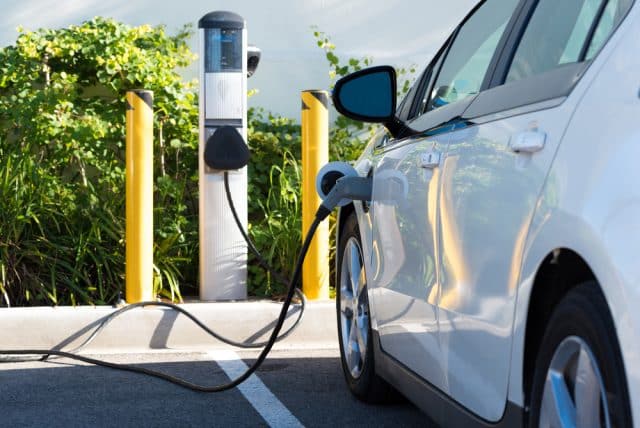The road to faster EV charging

Electric vehicles (EVs) are more popular than ever. As prices drop and options increase, these once-rare cars are becoming an increasingly viable option for more drivers. However, their limited range and long charging times are holding buyers back.
The average EV can travel just 217 miles before charging, which is fine for daily commutes but not ideal for longer road trips. Of course, gas and diesel cars must also stop to refuel on long drives, but they can fill up in minutes. By contrast, EV charging is often slow. That has to change for these vehicles to become standard, so here’s a glimpse at the future of fast EV charging.
SEE ALSO: Detection and protection from crypto romance scams
EV Charging Today
EV chargers fall into three categories today. The first, Level 1, is what you’d find in a home, as they use standard residential outlets. However, they don’t provide much power, so it takes 40 to 50 hours to charge an electric car from empty to full.
Level 2 chargers, which you’ll see in parking lots and public garages, use much higher-voltage outlets. As a result, they’re far faster, fueling an EV from empty to full in four to 10 hours. While that’s a significant improvement, it’s still not convenient for longer trips, especially compared to refueling a gas car.
Level 3 chargers, also called direct current fast charging (DCFC), can charge an EV to 80 percent in less than an hour. Some, like Tesla's exclusive Superchargers, can add 200 miles of range in just 15 minutes, making them more viable for a long drive. However, that still falls short of gas and diesel alternatives.
Obstacles in the Way of Super-Fast Charging
Why hasn’t EV charging reached the same level as refilling a gas tank? It’s mostly an issue of how lithium-ion batteries work. Moving too quickly between their cathodes and anodes can cause a problematic chemical reaction.
Fast charging can cause lithium plating, a phenomenon where lithium ions build up on an anode’s surface. The increased buildup could cause the battery to overheat, or chunks could fall off and cause a fire. Even if nothing dangerous happens, this plating will degrade the battery’s performance.
This isn’t a huge issue in other lithium-ion batteries, like the one in your phone, because they’re much smaller. As a result, it doesn’t take long to fill them up at slower charging rates. However, EVs have massive batteries, leaving you with a trade-off between charging safety and speed.
Solutions on the Horizon
These challenges are significant, but some possible solutions are emerging. Major automakers like Volkswagen, Ford and Mercedes aim to be fully electric in some markets shortly, so investments in charging technology will rise. That could take today’s possibilities into future realities.
One of the most promising solutions is solid-state batteries. In these setups, lithium ions flow through a solid electrolyte instead of a liquid one. This design minimizes fire hazards and opens the door to different anode materials to prevent lithium plating.
Solid-state batteries today are more prone to dendrite growth, a similar issue to lithium plating, but new materials could slow dendrite formation, improving performance. Similarly, different materials in conventional lithium-ion batteries could prevent plating and enable faster charging.
Other researchers are using machine learning to find new ways to improve battery design for faster charging. Recent breakthroughs can charge an EV to 90 percent in 10 minutes and could add 20 miles per minute within the next five years. As these technologies improve and emerge, automakers could also make EVs with smaller batteries. That may mean more stops but faster charging times with enhanced safety and lower costs, boosting sales.
Faster EV Charging Is Challenging but Not Impossible
Charging EVs quickly without causing other, longer-term issues is tricky. Despite that challenge, new research looks promising. More companies are leaning into these technologies, and super-fast EV charging could become a reality within a few years.
Faster EV charging would make green transportation more convenient, leading additional people to make the switch. These technological innovations would then help create a cleaner future.
Image credit: miflippo/depositphotos.com

Devin Partida writes about AI, apps and technology at ReHack.com, where she is Editor-in-Chief.